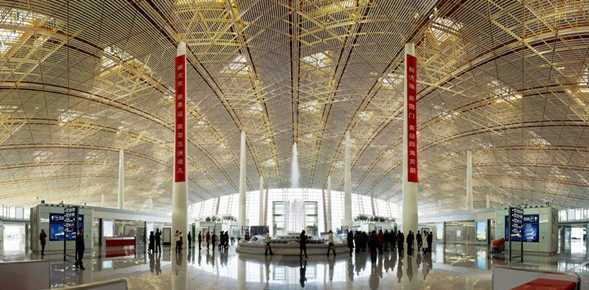Along with the coming November, Chinese newly introduced 72 hours transit visa-free policy has welcomed its fourth participant – Chongqing in Sichuan Province. However, the outcome of this policy in the previous two cities Beijing and Shanghai doesn’t seem to be satisfying at all.
CHINA – In a bid to boost inbound travel, China introduced 72-hour transit visa-free policy in the beginning of this year first in Beijing and Shanghai, followed by Guangzhou from 1st August and Chengdu from 1st September respectively. This November, the new move just welcomed its fourth member, Chongqing, which made itself a hotspot among media and industries overnight. However, judging from the performance of the new policy since its application in Beijing and Shanghai for almost one year, the result turns out to be hardly satisfying.
During the first half year, numbers of passengers who had benefited from the new policy in Beijing and Shanghai were 5200 and 5524 respectively, far less than an expected 100,000 to 200,000 per year. Reasons revealed by industrial professionals come from mainly two aspects: 1. it takes time to promote the policy until it actually come into effect, especially within the situation when global economy is slumping. 2.the lack of experience and innovational ideas in promoting such policies in a global market. To be specific, problems and suggestions are discussed below:
Firstly, airline companies now become the main force to promote the visa-free policy instead of government apartments and airport authorities. Visa-free policies are introduced to target overseas customers, because of which, marketing and promotional initiatives are supposed to be taken with special focus on international markets, and this calls for the participation of local authorities. However, the tepid reactions of foreign media so far forms noticeable contrast against the buzz created within the country itself due to the reason that it is even harder to reach overseas mainstream markets simply by relying on airlines and travel agents. The local government and airports need to participate and contribute more to give a stronger voice in this marketing program.
Secondly, facilities and service in airports needed to be “matched”. The transit visa-free policy in China have failed to be advance in comparison with South Korea, Hong Kong, Thailand, etc. who had employed it already couple of years ago. Therefore, in a bid to compete with those international counterparts, Chinese airports still need to keep upgrading its hard and software i.e. the convenience and comfortability of infrastructures, customer-oriented service and streamlined transit procedures. Given that complaints about the untidy of the environment, unclear of signs and the lack of multi-language service have been collected constantly from airports, the ones who aim to position themselves as international hub had better focus more on self-development.
Finally, cities’ brand identity should be improved. When choosing a transit place, passengers are not only convinced by the airport, but also the local tourism culture, shopping environment and preferential trade terms. Taking all those points into account, how to differentiate themselves with unique characters remains a challenge that is worth exploring by Chinese practitioners.
While according to Beijing Capital International Airport, foreigners holding temporary entry permissions now are able to enjoy a 20%-30% discount when consuming food and beverage within the airport, moreover, if they spend a minimum 10,000 RMB in tax-free shops, they can get a free night in Hilton (Beijing Airport Hotel). However, passengers applying for 72hrs visa-free entry must not leave Beijing and have to depart via Capital International Airport after a maximum 72hrs.




![[PR] PR_Ascott and Vimut Hospital_2024](https://www.traveldailynews.asia/wp-content/uploads/2024/04/PR-PR_Ascott-and-Vimut-Hospital_2024-400x265.jpg)

























































